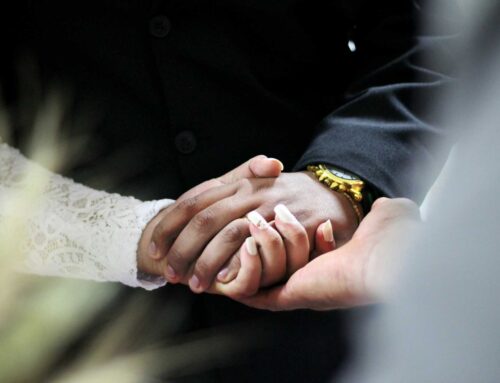 Many shows that occupy our roster of Netflix binging or long-term viewing are about people and the friendships and connections they form with others. We love tuning in to see these virtual companions of ours meet, build rapport, endure hardship, overcome obstacles, find love, argue, do life together and so much more. We participate in these friendships and find ourselves feeling as though these characters are people that we know and love, never considering whether or not they are true or toxic friends.
Many shows that occupy our roster of Netflix binging or long-term viewing are about people and the friendships and connections they form with others. We love tuning in to see these virtual companions of ours meet, build rapport, endure hardship, overcome obstacles, find love, argue, do life together and so much more. We participate in these friendships and find ourselves feeling as though these characters are people that we know and love, never considering whether or not they are true or toxic friends.
Friendship is one of the many gifts that we can enjoy that make life worthwhile. With our friends, we can share our lives, explore common interests, find support when we are struggling with life issues, and flourish.
Our friendships, if they are deep and healthy, can help us to draw closer to God and to mature in faith. As C.S. Lewis once wrote, “Is there any pleasure on earth as great as a circle of Christian friends by a good fire?”
Having said that, not all friendships are created equal. Some friends may be in name only, and instead of being a blessing, toxic friends can undermine your well-being in significant ways.
What a true friend looks like
There’s an old hymn that has as one of its main lines, “What a friend we have in Jesus”. There is a real sense in which Jesus Christ epitomizes what a good friend is. Speaking to His disciples on the night He was betrayed, Jesus said, “Greater love has no one than this: to lay down one’s life for one’s friends” (John 15:13, NIV). Being willing to go down to the mat for your friends is a mark of deep love that’s hard to find.
Writing to the Christians of Rome, Paul wrote, “Very rarely will anyone die for a righteous person, though for a good person someone might possibly dare to die. But God demonstrates his own love for us in this: While we were still sinners, Christ died for us” (Romans 5:7-8, NIV). All of this is to say that God has laid out a pattern for us of deep friendship that seeks out the good of the other.
Our friendships typically do not entail us giving up our lives for those we love, but the idea is that a true friend cares for you and is willing to act in tangible ways to seek out your good. A conversation can and needs to be had about codependent behaviors.
Still, the difference between a good friend and a codependent is that a good friend has boundaries and can tell you “No” if what you’re asking for isn’t ultimately good for you, or if it violates their boundaries.
A good friend challenges you and keeps you accountable because they want you to be the best version of yourself. Again, Jesus has modeled this for us by loving us with deep compassion while still speaking truthfully to uproot what could be detrimental to our well-being. A good friend will also not begrudge you other good friends, because each friend brings out something different in you that others can’t.
These are just a few of the ways that a good and true friend acts toward you.
Discerning toxic friends
 A friendship can start healthy, and then unhealthy habits set in that start to undermine it. It’s also possible for a friendship to have started in an unhealthy way, and for it to continue that trajectory. A toxic friendship can nonetheless be a cherished one – when you’ve built up memories and treasured experiences together that build trust and rapport, that connection matters, even if it is unhealthy.
A friendship can start healthy, and then unhealthy habits set in that start to undermine it. It’s also possible for a friendship to have started in an unhealthy way, and for it to continue that trajectory. A toxic friendship can nonetheless be a cherished one – when you’ve built up memories and treasured experiences together that build trust and rapport, that connection matters, even if it is unhealthy.
Toxic friendships can be discerned through certain traits that your interactions contain. Additionally, they can be discerned through the way they affect you and your well-being. Some of the traits of a toxic friendship include:
The relationship is imbalanced
No relationship is ever perfectly balanced, but there are some relationships in which one person is always giving of themselves to meet the needs of the other person, but it isn’t reciprocated. This could signal a toxic, codependent dynamic.
The relationship feels exhausting
A healthy relationship should energize you and leave you feeling joy in your interactions. If you feel tired or frustrated after spending time together, and that is common, there’s an issue there.
The relationship is mired in conflict
Friends have arguments, and they can get on each other’s nerves. However, that’s not the typical state of a healthy relationship.
 There are emotional and other forms of abuse
There are emotional and other forms of abuse
A toxic relationship isn’t a place of nurture. Instead of words of encouragement, a toxic friendship is marked by harsh criticism, manipulation, gaslighting, being made fun of or humiliated, and so much more.
It’s vital to discern between true and toxic friends and not leave things as they are. If you find yourself in a toxic relationship, you can work to deal with those elements of the relationship. Part of that is working on yourself because a toxic dynamic involves two people. Reach out today to seek guidance from a licensed counselor at Carlsbad Christian Counseling in California to help you develop good boundaries to promote a healthy friendship.
Photos:
“Comfort”, Courtesy of Priscilla Du Preez, Unsplash.com, CC0 License; “Friends”, Courtesy of Adrienn, Pexels.com, CC0 License; “Buddies”, Courtesy of Natalia Blauth, Unsplash.com, Unsplash+ License
DISCLAIMER: THIS ARTICLE DOES NOT PROVIDE MEDICAL ADVICE
Articles are intended for informational purposes only and do not constitute medical advice; the Content is not intended to be a substitute for professional medical advice, diagnosis, or treatment. All opinions expressed by authors and quoted sources are their own and do not necessarily reflect the opinions of the editors, publishers or editorial boards of Carlsbad Christian Counseling. This website does not recommend or endorse any specific tests, physicians, products, procedures, opinions, or other information that may be mentioned on the Site. Reliance on any information provided by this website is solely at your own risk.





